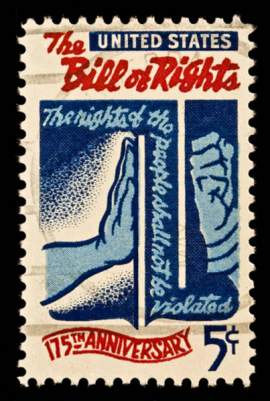
Korematsu v. United States

Popular In Constitution
Purpose Of Lifetime Appointment And Pros And Cons Enumerated Powers Bicameral Legislature Background Article 3 Of The Constitution We The People 1st Amendment Who Wrote The Constitution Judicial Review Equal Protection Clause 5th Amendment 10th Amendment Three Fifths Compromise
Korematsu v. United States (1944) was a significant United States Supreme Court case that ruled that the Government's use of Japanese internment camps during World War II was Constitutional. This decision, written by Justice Hugo Black, was very controversial because it was the first time the Supreme Court ruled on racial discrimination based on the strict scrutiny standard. This means that the Supreme Court applied the most stringent interpretation of the law to justify the use of Japanese internment camps as superior to individual rights.
Executive Order 9066, passed in 1942 by President Franklin Delano Roosevelt, ordered those with "Foreign Enemy Ancestry" to be sent to internment camps. Although the order did not technically name any ethnic groups, this applied to about 12,000 Japanese Americans. The U.S. Government considered these individuals to be of heightened risk to national security.
Fred Korematsu was a Japanese American living in California who,
after being ordered into a Japanese internment camp, refused to leave his city.
Korematsu claimed that the Executive Order violated his personal rights as
specified by the Fifth Amendment to the United States Constitution. This Amendment in the Bill of Rights states that no person shall be "deprived of life, liberty, or
property without due process of the law". Korematsu argued that he was
being deprived of his right to live freely without the appropriate legal
process. This due process of the law clause has been found in previous court
cases to restrict the type of control that the Government is permitted to
exercise over citizens.
Korematsu was arrested for violating the order. The Supreme Court
found, based on the precedent of Hirabayashi v. United States, that the Government
Order was not based on racial prejudice, but based on the fear of an incident
similar to Pearl Harbor. Justice Black claimed in his decision that the United
States military was acting properly because the U.S. feared a possible invasion
from Japan. This temporary segregation of Japanese Americans was ruled to be
constitutional on the basis of "military urgency".
The case was decided on 6-3.
Three Supreme Court Justices wrote dissents against the
use of Japanese internment camps. These dissents compared the treatment of
Japanese Americans to the policies of Nazi Germany and claimed that the Order
was based entirely on racial discrimination rather than military necessity.
Justice Frank Murphy's dissent called the decision the "legalization of
racism".
Korematsu's argument for his refusal to relocate
to a Japanese internment camp was based on a violation of both the Fifth
Amendment and a writ of habeas corpus. Under a writ of habeas corpus, a person
should be able to obtain relief from unlawful detention. However, Korematsu was
denied this right. Although Korematsu's conviction was overturned in 1984, this
was based on the ruling that the United States Government had supplied false
information in the original court case. However, the 1944 decision that the Government's
use of racial discrimination by forcing Korematsu into a Japanese internment
camp was Constitutional was not overturned.
NEXT: Lochner v. New York





















